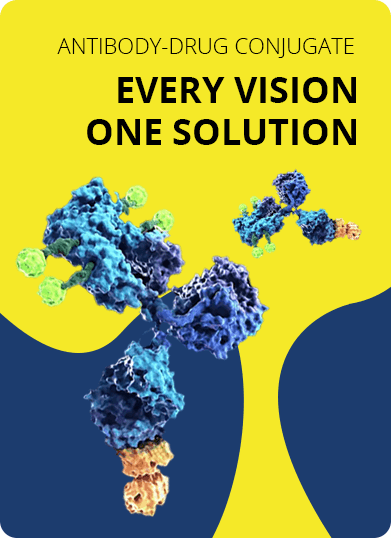- Home
- ADC Development
- Antibody Discovery for ADC Development
- Tumor Surface Protein Specific Antibody Discovery
- Anti-RCAS1 Antibody Discovery
Anti-RCAS1 Antibody Discovery Service
The expression of receptor-binding cancer antigen expressed on SiSo cells (RCAS1) is associated with aggressive characteristics and poor overall survival for 15 different human malignancies. Anti-RCAS1 antibody development has aroused great interest among researchers. As a well-recognized leader in antibody preparation and with over a decade of experience, Creative Biolabs is dedicated to the development of new therapeutic agents against RCAS1 with a series of advanced technology platforms.
RACS1 Ectodomain Shedding
RCAS1 is a 639 amino acid (aa), type II membrane protein with an N-terminal transmembrane segment and a C-terminal coiled-coil structure which is involved in oligomer formation. RCAS1 acts as a ligand for different receptors present in various human cell lines and natural killer (NK) cells, normal peripheral lymphocytes cells and is associated with diseases such as pancreatic adenocarcinoma, ovarian cancer, gastrointestinal tract cancers, biliary cancer. RCAS1 is secreted by ectodomain shedding and induces apoptosis in peripheral lymphocytes and NK cells. It is notable that apoptosis is mainly induced by the secreted rather than the membrane-anchored form. Overexpression and ectodomain shedding of RCAS1 mediated by a disintegrin and metalloproteinase (ADAM) 9 may contribute to tumor progression via not only stromal remodeling but also tumor cell proliferation, thus RCAS1 is believed to help tumor cells evade immune surveillance. The correlation between RCAS1 expression and several clinicopathological variables, including tumor size, invasion depth, and lymph node metastasis highlights this molecule's clinical significance.
Antibody Strategies against RACS1
Since RCAS1 is secreted by ectodomain shedding, and apoptosis is induced mainly by the soluble form, inhibition of RCAS1 secretion is crucial to control its function. Due to a variety of substrates, there is a greater risk of multiple and severe side effects by using sheddase inhibitors to prevents the cleavage of RCAS1 and subsequent activity of downstream pathways. Different from using siRNA and antibodies to inhibit the function of RCAS1, a third strategy would be designed to focus on the ADAM 9-mediated RCAS1 ectodomain shedding by developing molecularly targeted antibodies to cover the cleavage site and kill cancer cells with payload or neutralize the function of soluble RCAS1 to prevent any possible soluble RCAS1-induced activities beneficial to tumor development, respectively.
Features
- Diverse antibody development approaches
- Shorter turnaround times
- Best after-sale service
- Cost-effective
With the rapid development of antibody research, monoclonal antibodies (mAbs) have been extensively used for the treatment of a variety of disease. Our experienced scientists are committed to providing high-quality antibodies to contribute to the success of your project. Except for anti RCAS1, Creative Biolabs also provides antibody development services against other tumor surface proteins for our worldwide customers. If you are interested in our service, please feel free to contact us for more details and information.
For Research Use Only. NOT FOR CLINICAL USE.

Online Inquiry
Welcome! For price inquiries, please feel free to contact us through the form on the left side. We will get back to you as soon as possible.
